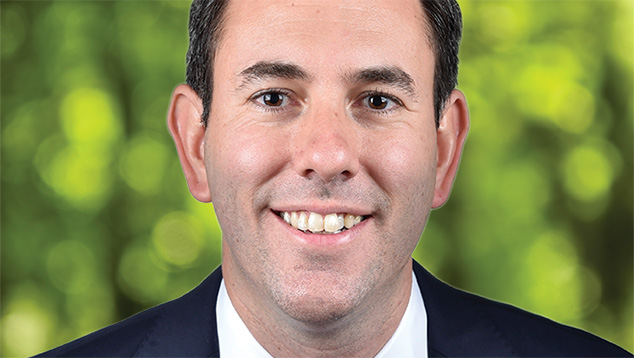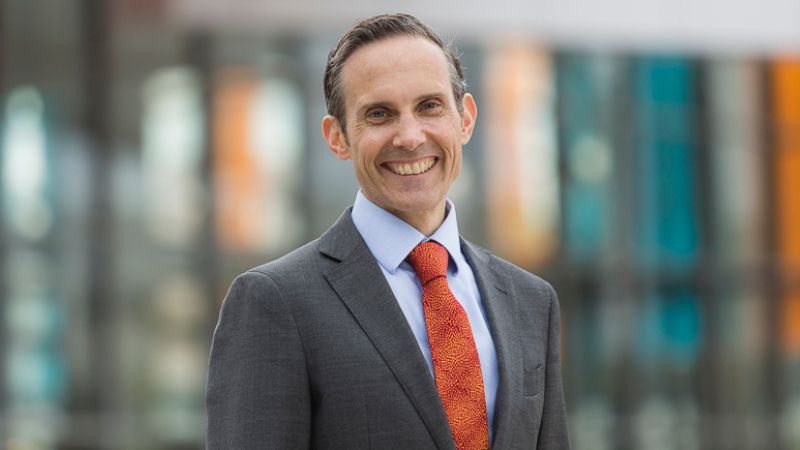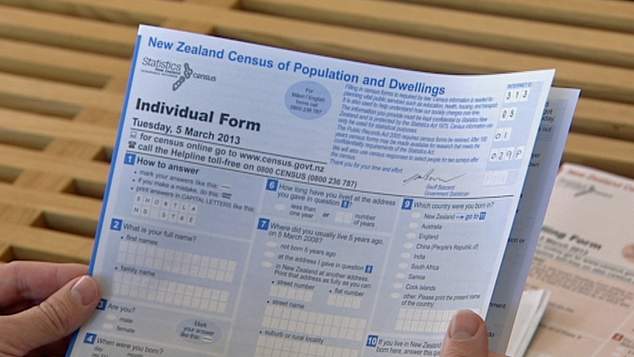The Albanese government has announced it will allow questions on both sexuality and gender in the 2026 census, but a question about intersex people appears to be have been ruled out.
The latest announcement is the latest in a series of positions the government has taken on the issue over the last fortnight which has seen them face a major backlash from LGBTIQA+ organisations and a revolt from their own MPs.
Treasurer Jim Chalmers announced the latest position during an appearance on the ABC’s Insiders program.

Chalmers said the government had “good intentions” when it ruled out the questions out of fear that they would be weaponised.
“We had good intentions here.” Chalmers told host David Speers. “We’ve listed to the community and we’ve worked with the ABS (Australian Bureau of Statistics) and we said that we would find the best way through, and we believe that we have.”
“The message that we want to ensure that Australians hear from us today is that we understand the feedback that we got, we listened to that, we took it very seriously. We listened very genuinely.”
Andrew Leigh, the Assistant Minister for Competition, Charities, and Treasury, and Assistant Minster for Employment, formally announced the backdown a fortnight after the government declared questions would not be included.
“The Albanese Government is setting a new topic of ‘sexual orientation and gender’ for inclusion in the 2026 census” the minister said in his announcement.

Giiles acknowledged that the questions have been developed by the Australian Bureau of Statistics Expert Advisory Committee, which included representatives from many peak bodies in the sector.
The backdown on including the questions came after over 120 community organisations publicly called for the government to revisit their decision and include the proposed questions on sexuality, gender identity and variations on sex characteristics.
Leigh said a question about intersex people would not be included as it had not been recommended by the Australian Bureau of Statistics (ABS).
“Although this topic was considered by the ABS, testing indicated high quality data could not be collected due to the technical complexity of the topic. The government will continue to work with the intersex community about ways of gathering information in other ABS surveys.” the minister said.
Intersex Human Rights Australia say decision is a devastatingly development
Dr Morgan Carpenter, executive director of Intersex Human Rights Australia said the decision was a “devastating development”.
“This is a devastating development, which means that the next census will be out of step with the 2020 ABS Standard, and new standards for health and medical research. It means that we won’t get much needed information on the health and wellbeing of people with innate variations of sex characteristics (intersex/differences of sex development).” Dr Carpenter said.
“In many ways, this is not a surprising decision. Clearly the population of people with innate variations of sex characteristics is poorly understood by media and government, with the persistence of inappropriate ways of understanding who we are.
“We see this in widespread stigmatising and harmful attitudes. We see this in harmful attempts to count our population in the 2016 and 2021 censuses, and we see this in 2013 national gender recognition guidelines that have wrongly inserted the term intersex into a definition of a third gender.
Dr Carpenter said much of the media reporting in recent weeks had also show a lack of understanding of the differences between sexuality, gender and variations in sex characteristics.
“We see it in media reports that frame the question on innate variations as about gender and sexuality, which may now make incomprehensible the idea that the government is including questions on gender and sexuality into the census – but not the question on variations of sex characteristics.
“We don’t have funding to deliver psychosocial support services (we deliver these with funding with other deliverables that we meet), let alone address the stigma and discrimination that people with innate variations of sex characteristics experience.” Dr Carpenter said.

Dr Carpenter said the ABS had proposed testing the question that had been developed, and it was consistent with the wording used in other juristictions such as the 2023 New Zealand census.
With permission from the ABS Dr Carpenter shared the question that had been developed.
Has the person been told they were born with a variation of sex characteristics (sometimes called intersex or differences of sex development)
Yes
No
Don’t know
Prefer not to say
Critics of the government’s decision welcome the change of stance
Labor MP Josh Burns, who was one of the first Labor members to publicly criticise the decision to remove the questions welcomed the latest position on the issue.
“I’m proud that this morning we have announced that the upcoming census will have questions on sexuality and gender,” Burns said.
Equality Australia welcomed the decision to include both the sexuality and gender questions. The group said it was “unfortunate” that the ABS did not recommend the question on intersex people.
“Unfortunately the ABS did not recommend testing a intersex question but we hope to continue advocacy on this so people with innate variations of sex characteristics can be counted in the future.” the organsation posted to social media after their initial response did not include a statement on the question that was not being included.
Greens senator Stephen Bates welcomed the decision saying it a was a positive move but noted that the intersex community was still being left behind.
“The pain and chaos of the past fortnight could have been easily avoided if the Prime Minister had not made a captain’s call to abandon an election promise and exclude us from the census.
“Regardless of this shift, Labor has shown us their true colours. Labor has shown us that if they think they can get away with abandoning promises to the LGBTIQA+ community, they will.” Bates said on social media.
Independent MP Alegra Spender, who had voiced her concern over the government’s move to reject the questions, welcomed the latest decision.
“Finally the government has seen sense and will include questions of sexuality and gender identity in the census. Thank you to everyone who stood up and demanded the community be recognised, for better public policy and a fuller picture of this beautiful country.” the MP posted to social media site X, formerly known as Twitter.




